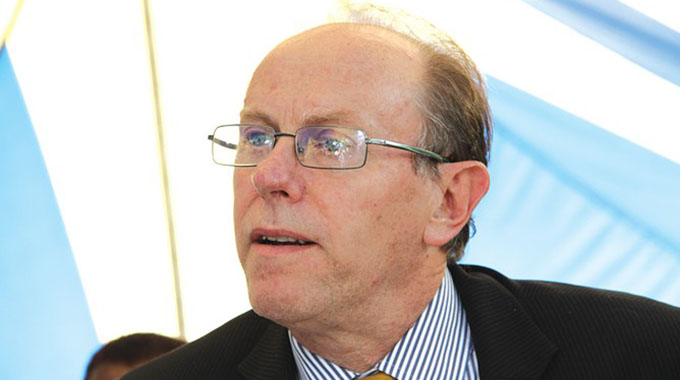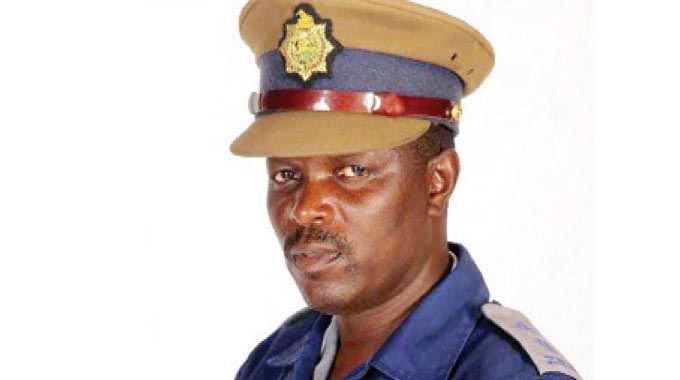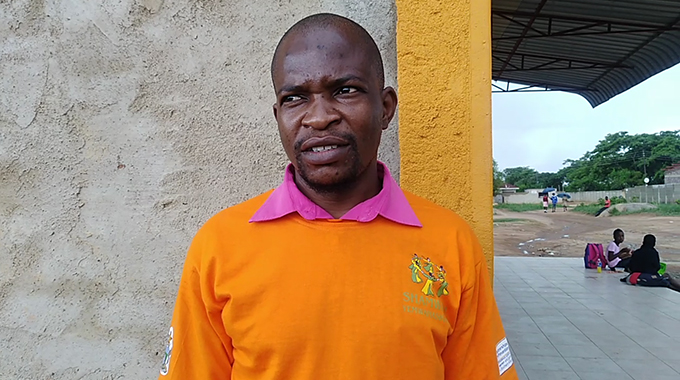Opposition faces uphill battle to dislodge Zanu PF

Gibson Nyikadzino Correspondent
Ex-Rhodesian David Coltart is an unrepentant man. It appears his mind is still dominated by Ian Smith’s ancient and archaic view that majority rule shall not be attained in Zimbabwe, “not in a thousand years.”
Even in independent Zimbabwe, he appears unhappy to see the country have an unfolding and flourishing multi-party political system.
Last Friday he fought Zimbabwe’s constitutionally-guaranteed multipartyism by suggesting that one aspirant for the scheduled 2023 presidential elections, Robert Chapman, stop pursuing political power with his entity, but rather “join and strengthen CCC”.
“Do you realise that all you are going to do is divide those opposed to Zanu PF, which benefits Zanu PF and no one else? Why not rather join and strengthen CCC?” asked Coltart.
Mr Coltart reminds this writer of a man belonging to a political grouping advocating for the revival of Aristophanes’ plan in one of his playwrights, “Assembly Women”, that is to force handsome boys to marry ugly women. The CCC is not attractive, nor is there any opposition that can challenge the revolutionary party.
But his dislike for multipartyism is a story we reserve for another day, whose genesis is colonially Smithian, where he single-mindedly defended only one and oppressive establishment, the Rhodesian Front.
Rise and fall of the Third Way
Winning or retaining political power is an essence of politics. The efforts of political leaders that want power are seen in the prisms of their ability to get their way through a combination of power balancing, negotiating, authority, legitimacy, ideas and above all, organisation.
Since the advent of majority rule post 1980, political contestations and elections in Zimbabwe have been situated in the framework of a two-horse political race.
In the first decade from independence, competition was between Zanu and PF Zapu (before the 1987 Unity Accord) while post-millennium it has been Zanu PF and MDC.
It first happened in the 2008 elections when Dr Simba Makoni emerged as an “alternative” or a third way promising better political ideas to Zanu PF and the MDC. The idea of having a third way as a political initiative was premised on the view that both Zanu PF and the MDC were inept at dealing with Zimbabwe’s challenges back then hence the need for a third option to effect change.
Ten years later, the third way initiative was abandoned when 23 presidential aspirants contested the election and politicians went back to the dual-party political position despite earlier talks of a “grand coalition” to dislodge Zanu PF. It never happened.
Coalition politics and the third way initiative cannot survive in Zimbabwe political terrain because of a lack of adaptability to the system.
Proponents of the third way and coalition politics prescribe such as an antidote based on their hatred and dislike of Zanu PF and not based on challenging the ruling party at an ideas level.
It explains why Zanu PF has not had a main challenger at an ideas level since the two previous elections.
The argument availed is that coalitions are better organised than the broad mass of people in a society, yet evidence around that suggests otherwise as alliances failed to sustain their motives, but only to defend their narrow privileges.
From a broad mass of people, Zanu PF has shown its capacity to remain in power because of its belief in ideas.
This is even easy for a first grader to understand, but upon further reflection, even the so-called intelligent people in the opposition have failed to understand that they lack ideas.
Using God’s name in vain
Election season is upon us, and Zimbabwe’s next president will either see the incumbent re-elected or have one voted in for the first time. It is also a time for people to be careful with politicians, especially those that want to use the Lord’s name in vain.
When the name of God is used to benefit the interests of those who are speaking, it is time to be very careful.
While there is no doubt and is evident that CCC leader Mr Nelson Chamisa and his group have failed to use the toolkit of political science to challenge Zanu PF’s dominance, he has been resorting to invoking God’s name through the #GodIsInIt online campaign instead of campaigning offline.
He also thinks he is a self-appointed regent of God who, after failing to organise people politically, can only bank on religious faith to trigger a nationalist sentiment veiled by invoking God’s name. But in this case, religious nationalism has always been a symptom of a political problem.
Internally, the CCC after elections will split because of a lack of consensus between what the correct route to win political power between a nationalistic religious idea anchored on faith or practical political organisation.
As long as CCC political lunatics and religious fanatics continue to follow him to the path of political sequestration, the outcome of the next elections will leave them only with broken hearts to mend and nurse.
While Mr Chamisa continues to call God’s name in vain over things he can work on, but lazy and feeling incapable, he also has to be reminded that God is neither Zanu PF nor CCC, and that he ordains the outcome of every election everywhere in the world.
EU, UK, US seeing reality
History has stripped Africa’s people of the dignity of building their nations on their own indigenous values, institutions and heritage.
In many instances, the problem of leaders of Africa countries and emerging political parties to think in European terms is because they remain blinded with the false realities that are fed from the West.
What is important to think in African terms is at the peak of the West’s regime change agenda in Zimbabwe, it was the Zanu PF Government which took on the West, fought and won an economic war with conviction leading to the transfer of economic wealth to over 450 000 people through land ownership.
It is Zanu PF that defended the values of African political thought, Ubuntuism and Zimbabwe’s territorial integrity and sovereignty in the face of neo-imperialism and ensuring that post-independent Zimbabwean is one that is not a product of Europe, but the indigenous people.
The reality that the British, European Union and US governments are seeing is that they can no longer reverse the Africanness that Zanu PF has practically exhibited as a self-liberating idea in the broad mass of the population.
Today, huge financial commitments and investments being made by the EU to Zimbabwe, the amelioration of relations between Zimbabwe and the British and US governments is a simple expression of political reality that it is better for the West to deal with Zimbabwe than invest fortunes in the opposition which has no knowledge on the science to attain political power.
To the opposition, these are the dangers of political actions that are not informed by indigenous thoughts and identities. The momentum of the opposition is now flat and to think that Zanu PF can be dislodged from power by entities without ideas when the West, with their purported might failed, is to have a dream in past tense.
Zimbabweans, remember we are one.
This is homeland!









Comments